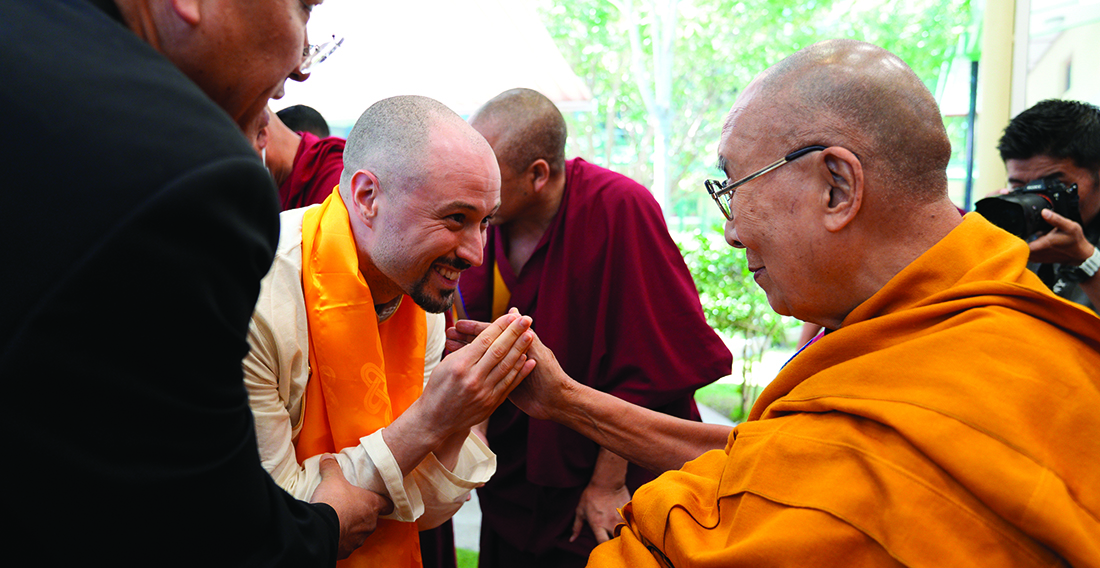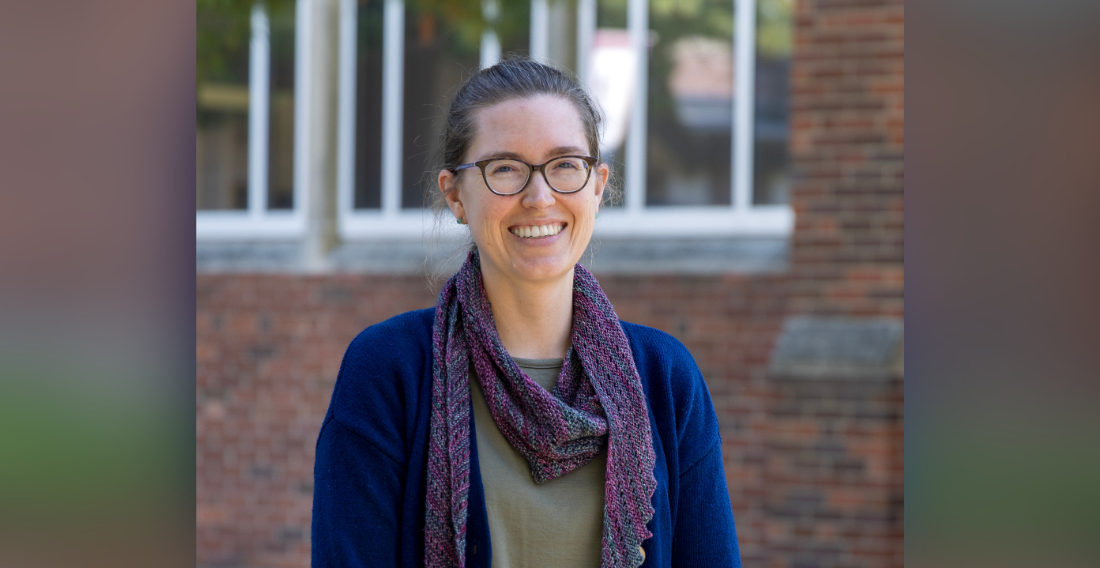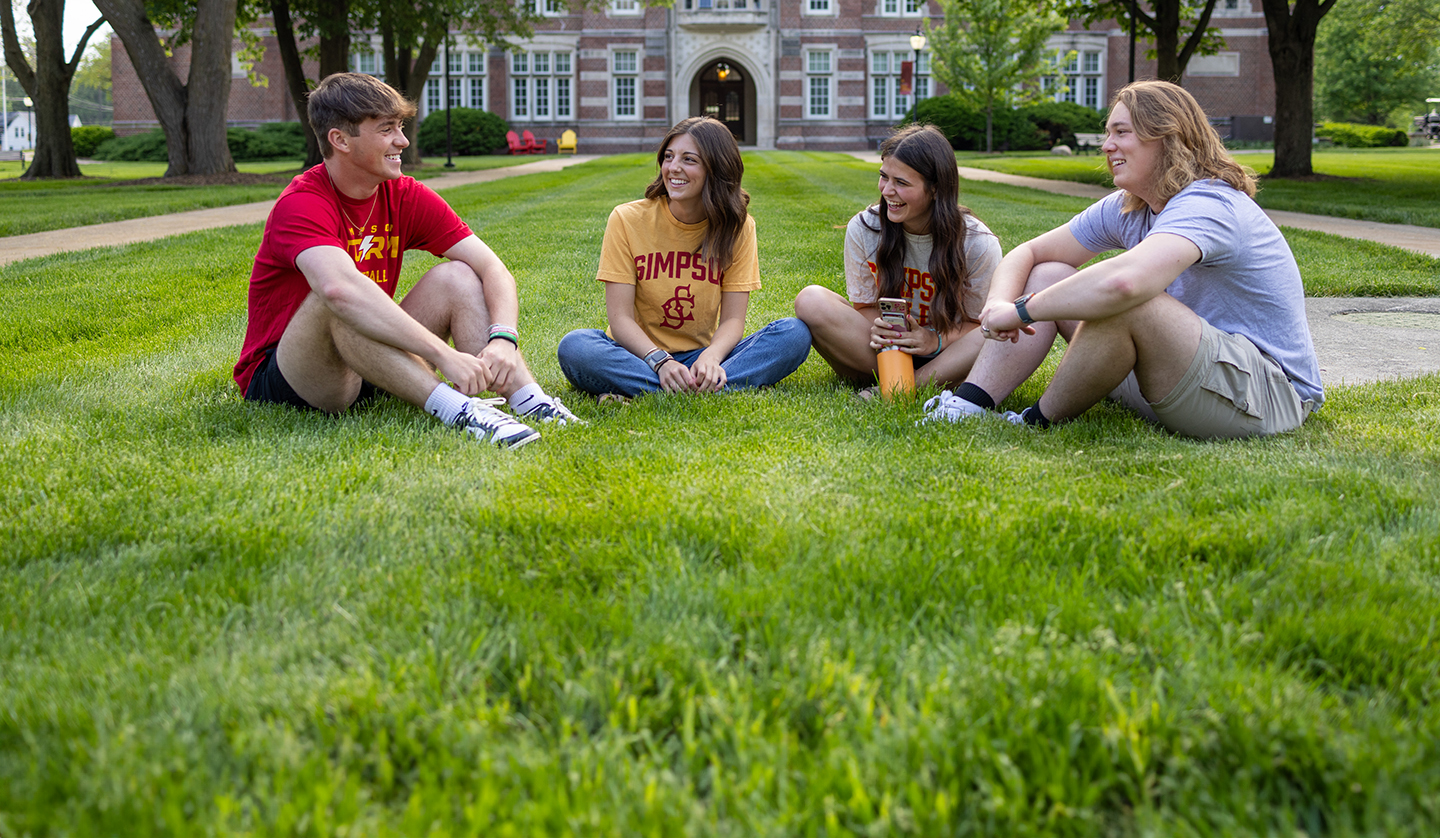CoryAnne Harrigan
English professor champions Iowa Food Cooperative, connecting local food producers with consumers
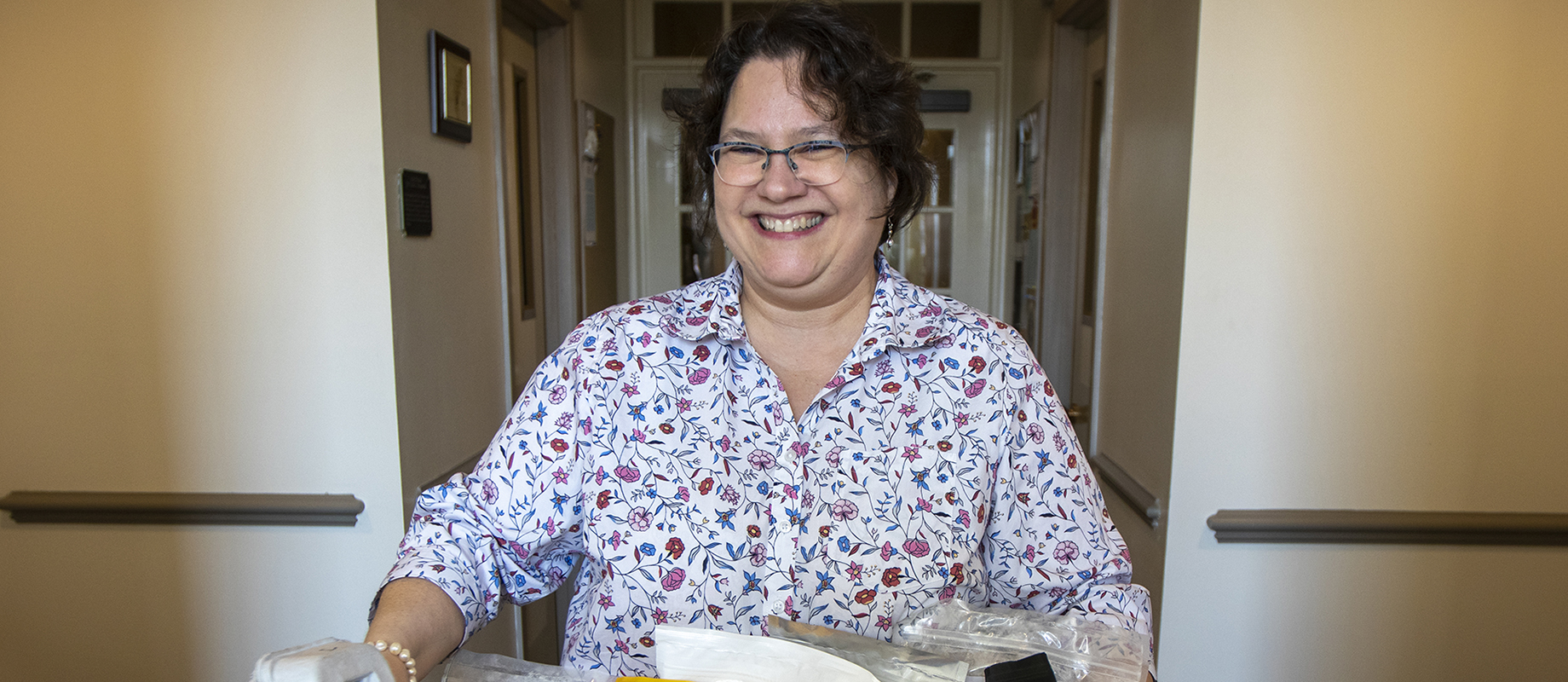
CoryAnne Harrigan remembers the first time she heard about a new food distribution program getting off the ground in Des Moines. It was early one morning back in 2008 and it popped up as a feature story on one of the local newscasts.
“It promised to connect local food producers with consumers in the area,” Harrigan said. “I was immediately interested.”
The English professor looked for more information online about the Iowa Food Cooperative and then talked about it with her spouse, professor emerita Patricia Calkins. They wanted to support local growers and decided to become two of the co-op’s founding members.
Interest in joining the IFC continues to grow since those early days when a handful of producers and shoppers first signed up. According to its website, there are currently 150 vendors with more than one thousand products offered – everything from meats and dairy to fruits and vegetables. There are even personal care products and prepared foods. Items are seasonal, and members can select what they want to buy when they become available.
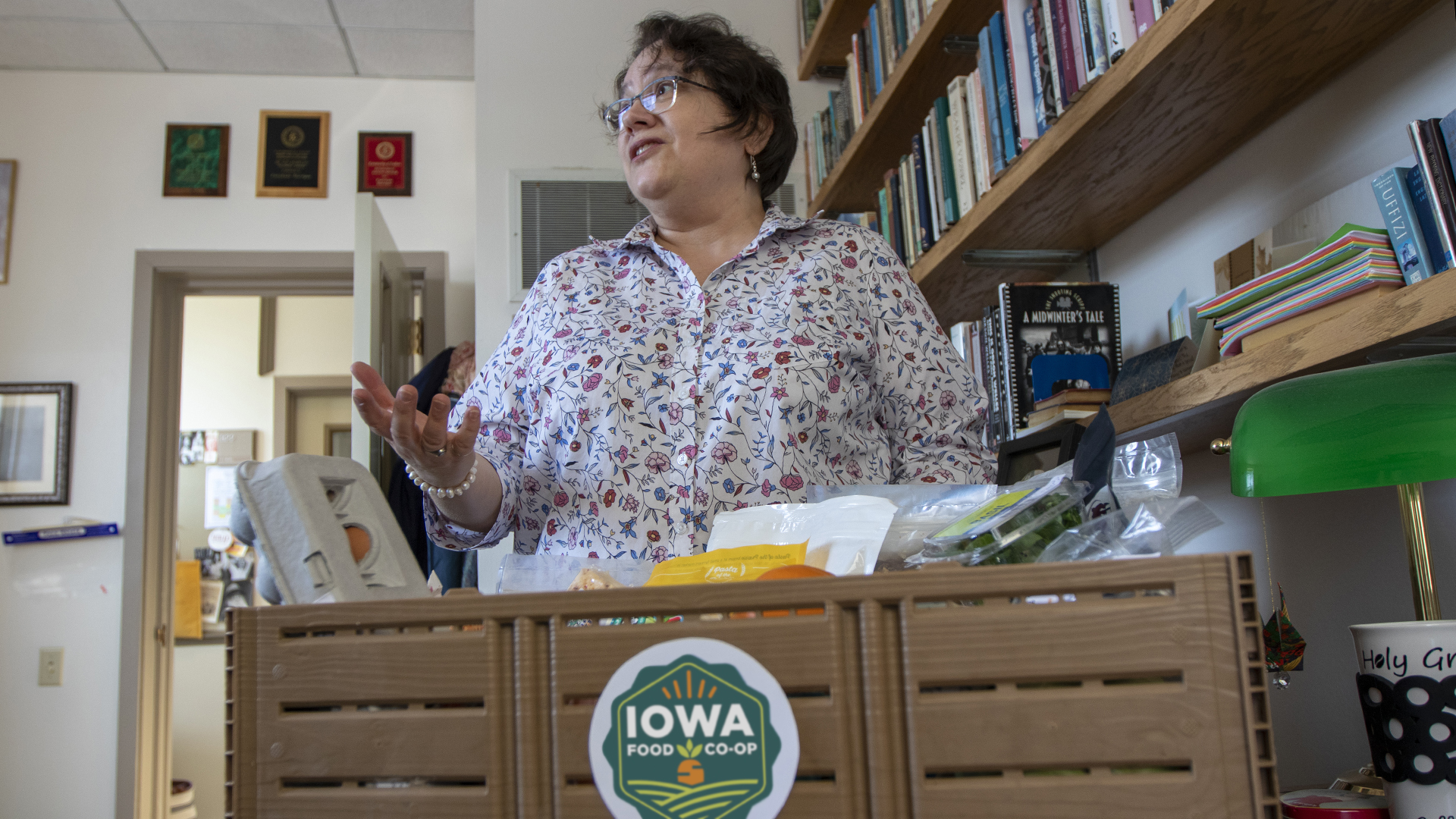
Harrigan says she’s always been interested in environmentalism and even created upper-level courses that incorporate the concept. One assignment in her senior colloquium challenged students to eat food grown locally as often as possible, then asked them to investigate the origins of their other choices. This exercise illustrates that even organic products can have an often-overlooked negative environmental impact when imported from far away.
“When we buy produce from California, even if it’s cheap and tasty, it’s still loaded with petroleum products, effectively,” Harrigan said.
Due to the COVID-19 pandemic and fears of shortages to the national food supply, membership at the co-op exploded in early spring. Harrigan took notice of how people changed their buying habits during those early days of the lockdown.
“I think it raised people’s awareness about just how much we rely on each other,” she said.
Harrigan serves as the volunteer coordinator for the IFC’s satellite pick-up location in Indianola. During the pandemic, she scrambled to find places where members could safely pick up their orders. At one point, she resorted to running the operation out of her garage. In mid-July, the College offered the use of some open facility space off Howard Street, which Harrigan says has been a lifesaver. The move ensured that the relationships between local growers and the community continue to grow.
“Food is not a luxury,” said Harrigan. “Getting fresh and local stuff should be as much of a human right as health care.”
Story first appeared in the spring 2021 issue of The Simpson Magazine
Article Information
Published
June 30, 2021
Author
Lisa Carponelli


